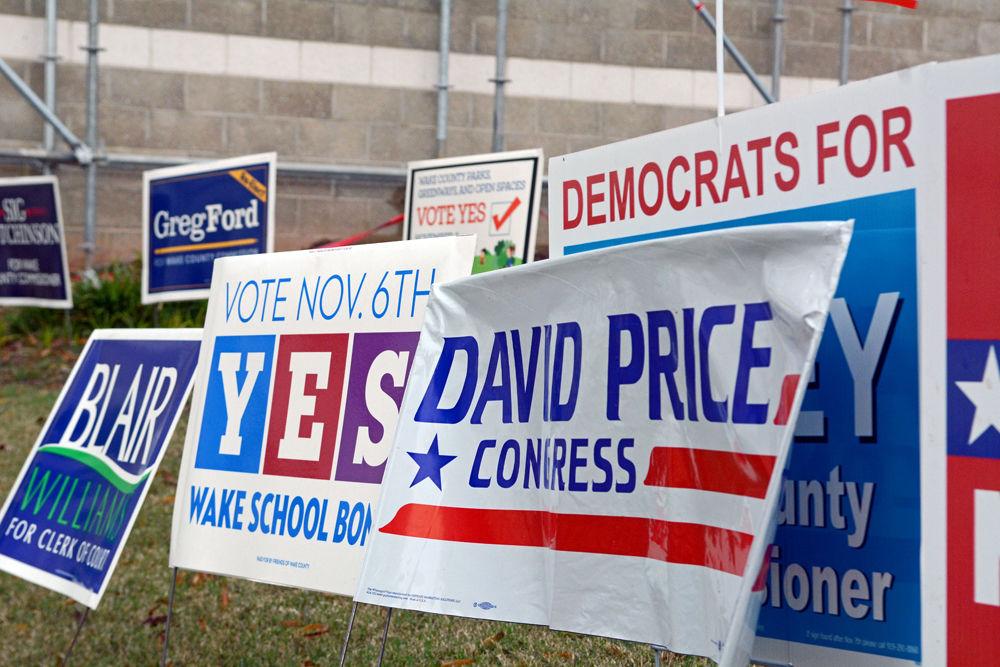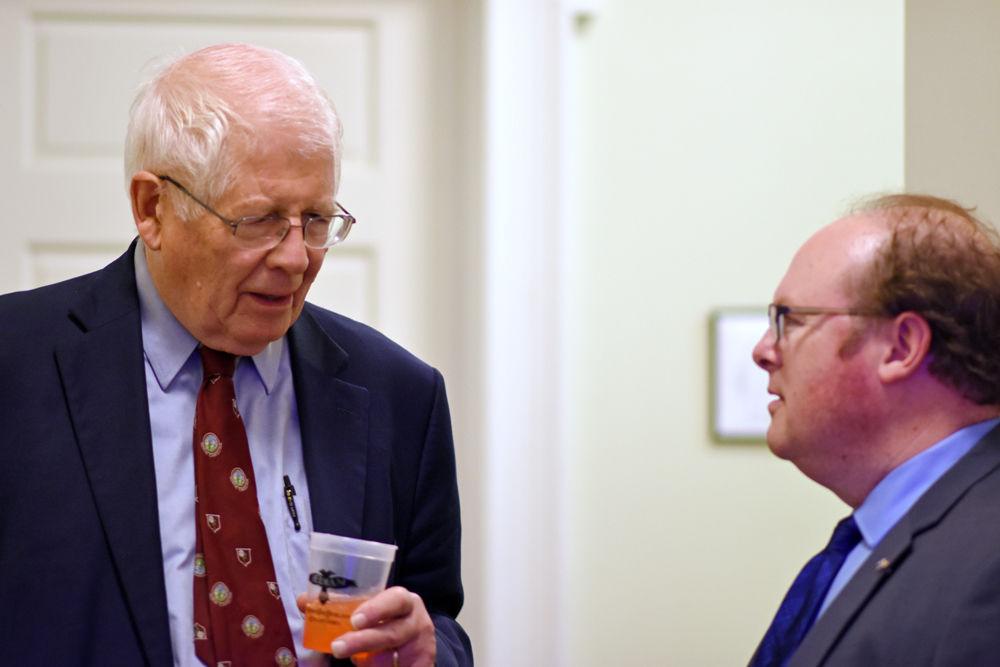Two NC State professors have attributed last week’s election results to a high young voter turnout and predicted little change to students and universities in North Carolina.
Last week’s midterm elections saw the Democrats break the three-fifths supermajority held by Republicans in the N.C. House and Senate. The supermajority allowed Republicans to override 20 of Governor Roy Cooper’s 25 vetoes.
Andrew Taylor and Steven Greene, professors of political science, credited the Democratic-leaning youth vote and higher turnout as key to Democratic gains.
“You put those two facts together, and you can’t help but conclude that young voters were somewhat important to Democratic gains across the country,” Taylor said. “And particularly in places in Wake County, where NC State students aren’t particularly different than others, but because Wake County and many of the legislative districts are sort of suburban and therefore battlegrounds, they could have made the difference in helping some legislators get over the hump.”
However, this could change in the future, depending on how the new voter ID amendment is written into law, according to Greene. North Carolina’s previous attempt at a voter ID law was struck down when a three-judge panel of the U.S. 4th Circuit Court of Appeals found that the law was created with “discriminatory intent.”
Greene explained that a voter ID law will likely be pushed through before the end of the General Assembly’s current session.
“That will be a big deal because they will, without a doubt, try and write a law in a way that disadvantages Democratic-leaning voter groups,” Greene said. “We saw this most dramatically in 2013, with the way it disadvantaged college students.”
Despite this, Greene said he expects to see a more moderate North Carolina General Assembly.
“Now the Republican legislature actually has to compromise with the governor rather than just overriding him on everything,” Greene said. “It brings Democrats back into the legislative process again, basically.”
According to Taylor, a new General Assembly session could raise questions over the funding of the UNC System.
“The size of state appropriations – whether it should be a tiny little increase or a bit of a cut or last year’s figure – that’s what they’re going to be fighting over,” Taylor said.
Taylor cited the UNC System’s reliance on taxpayer dollars in comparison to other states as a reason for a possible change.
“Even some Democrats have realized we’re a little out of whack with many of our peers,” Taylor said. “So, maybe it’s not that bad if we try to wean the UNC System off of taxpayer dollars a little bit.”
Greene said that the UNC System could benefit from a moderate General Assembly.
“The fact that you’re going to have to have a more bipartisan process for funding in the next two years should be good for the UNC System,” Greene said.
Despite potential changes to the funding of the UNC System, Greene predicted little change to student life.
“I don’t expect you’ll see dramatic changes, Greene said. “For your typical college student, you’re not really going to notice any differences.”
Rep. David Price speaks to Wayne Goodwin, chairman of the North Carolina Democratic Party, at the democratic election watch party on Tuesday, Nov. 6. David Price, the incumbent representative of North Carolina's fourth district, won against Republican opponent Steve Von Loor and Libertarian Barbara Howe to retain his House seat.









